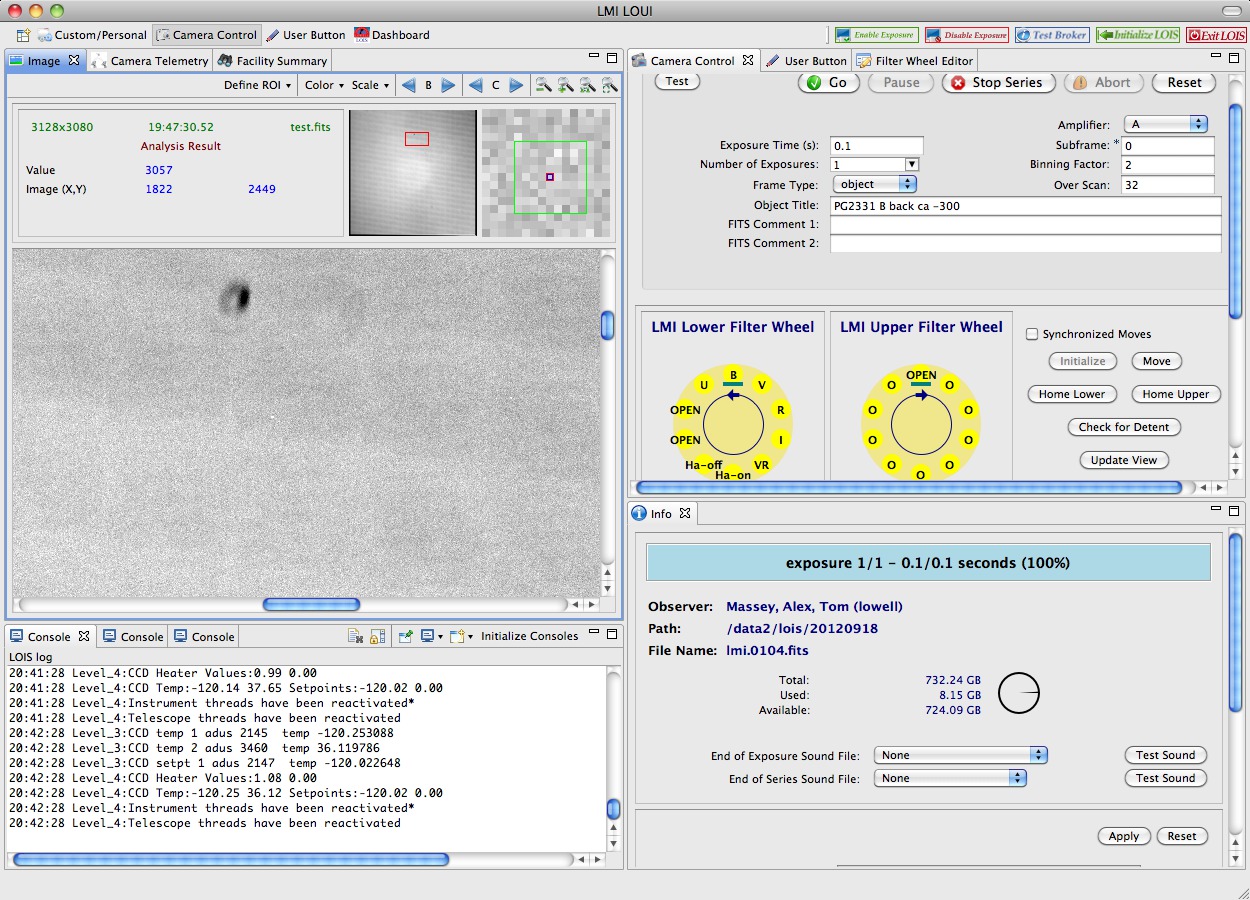
LMI: Software

The Lowell Observatory Instrument Software (LOIS) modular control system
is described by Taylor et al. 2004. Major modifications were recently made to improve its
robustness and operation across networks, with the user interface now on a separate platform-independent Java application known as the Lowell Observatory User Interface (LOUI). This has proven very reliable with the NASA42 Cam at
the 1.1-m telescope, and is in use for running HIPO on Sofia.
Some enhancement and changes for LMI were necessary:
- Integration with other DCT systems
- LMI's software needs to get basic telescope data from the DCT
(such as UT time, telescope position, catalog information).
- LMI's software needs to be able to send commands to the DCT
telescope control software to command small moves.
- LMI's filters are not perfectly parfocal, and so GWAVES will need
to piston the guider and wavefront sensors and the secondary mirror
based upon which filter is in use.
- Filter Wheel
- LMI uses a dual filter wheel; in addition, the positions of each wheel is encoded so that one always knows what position each wheel
is in, not just where the software thought it was sending the wheel. Thus
LOUI/LOIS needs to not just command the filter wheel to a particular position
but it must be prepared to read that position at the start of each exposure.
- Shutter
- The Bonn shutter provides status bits; these must be read and
displayed. (i.e., "Shutter closed" or "shutter open")
- Data storage/naming conventions
- The instrument PIs got together and agreed that some consistency
between instruments would be a Really Good Thing. Our adopted plan
can be found here.
- Headers
- Reductions:
-
The LOUI/LOIS headers are generally compatable with major software reduction codes, such as IRAF; effort has been made to assure ease of reductions.
Examples of a header can be found here.
- World Coordinate System:
- A "pretty good" WCS is now includedin the headers; this assumes
a default plate scale with field center and rotation matrix
based upon the data coming back from TCS, including any rotation off of the
cardinal directions.
- Real Time Display
- LOUI/LOIS has a real time display as each image reads down.
These results made use of the Discovery Channel Telescope at Lowell Observatory. Lowell is a private, non-profit institution dedicated to astrophysical research and public appreciation of astronomy and operates the DCT in partnership with Boston University, Northern Arizona University, the University of Maryland and the University of Toledo. Partial support of the DCT was provided by Discovery Communications. LMI was funded by the National Science Foundation via grant AST-1005313.


